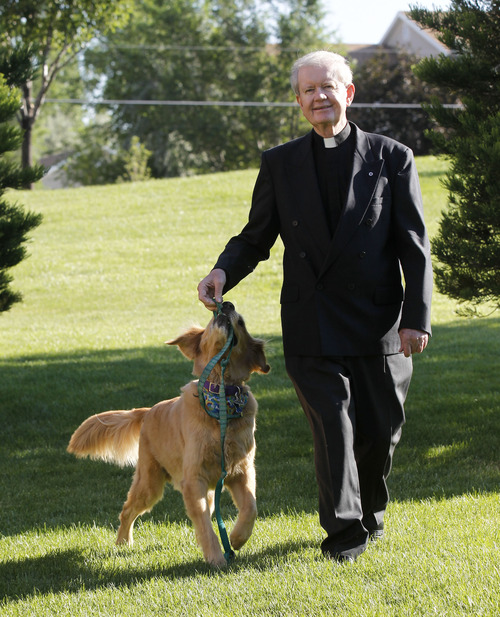This is an archived article that was published on sltrib.com in 2013, and information in the article may be outdated. It is provided only for personal research purposes and may not be reprinted.
Robert Kirby had the day off. This is a reprint of an earlier column.
Upon completing my LDS Church mission to Uruguay in 1975, I sat down with the mission president for an exit interview. Although my time was up, he said I was still a missionary.
The president cautioned me regarding the difficult transition some missionaries experienced upon returning to "civilian" life. It would take time to readjust.
I was readjusted before we cleared Uruguayan air space. The suit and tie came off in the plane's bathroom and I had a good time touring with my folks on the way home.
Not all returning missionaries fare so well/badly. It takes weeks, even months, for some to acclimate. After two years of operating by the numbers, they're uncomfortable watching TV, talking to girls or going somewhere without a minder.
Of course, that's just the mild cases. The extreme cases involve missionaries haranguing family and friends over their slacker lives and calling them to repentance for looking with fondness upon Diet Coke.
The strain this behavior puts on missionaries is nothing compared with the strain it puts on their loved ones. Sometimes it's all family members can do to keep from giving them a wake-up beating.
Maybe it's time the church helped. After all, if it can "raise the bar" when it comes to who goes on a mission, it can certainly help determine who is ready to come home.
Brad from southern Utah wrote and suggested that every returning missionary be sent through a Missionary Detox Center, or MDC. In fact, he'd like his daughter's missionary boyfriend to be the first one through it.
It makes sense. Two years of being intoxicated with the Spirit can't be kicked overnight. A bit of retooling seems called for. I've seen it in a vision or possibly just a bad idea.
Upon being released, missionaries would no longer go straight home. Instead, they would go to the MDC in Rexburg, Idaho. I thought about locating it in Guam, but that's just plain mean.
Week One focuses on separation anxiety, specifically the ability to go somewhere alone. By the end of this week, the missionary should be able to leave a room without telling someone where he's going and without suffering a panic attack.
Speaking of telling someone something, Week Two focuses on language skills, or getting the missionary to drop the mission lingo. Unfortunately, shock collars are sometimes necessary here.
Week Three is social reintroduction, or learning how to talk to people about something other than the mission's baptism goals, a mission conference or a mission experience.
By the end of Week Four, or Technology Week, the prospective returnee should be able to operate a television remote control, access the Internet and use an iPod in a nonfurtive manner.
Week Five is tough because that's special experience reorientation. The goal is to have the missionary hold a young woman's hand without feeling like the act totally violated the law of chastity.
Week Six is gospel doctrine, or teaching the missionary not to read the will of the Lord into changing traffic lights, regard clouds as potential omens or see Satan in a box of Froot Loops.
Graduation allows the missionary to go forth home and serve in the real world.
Robert Kirby can be reached at rkirby@sltrib.com or facebook.com/stillnotpatbagley.



